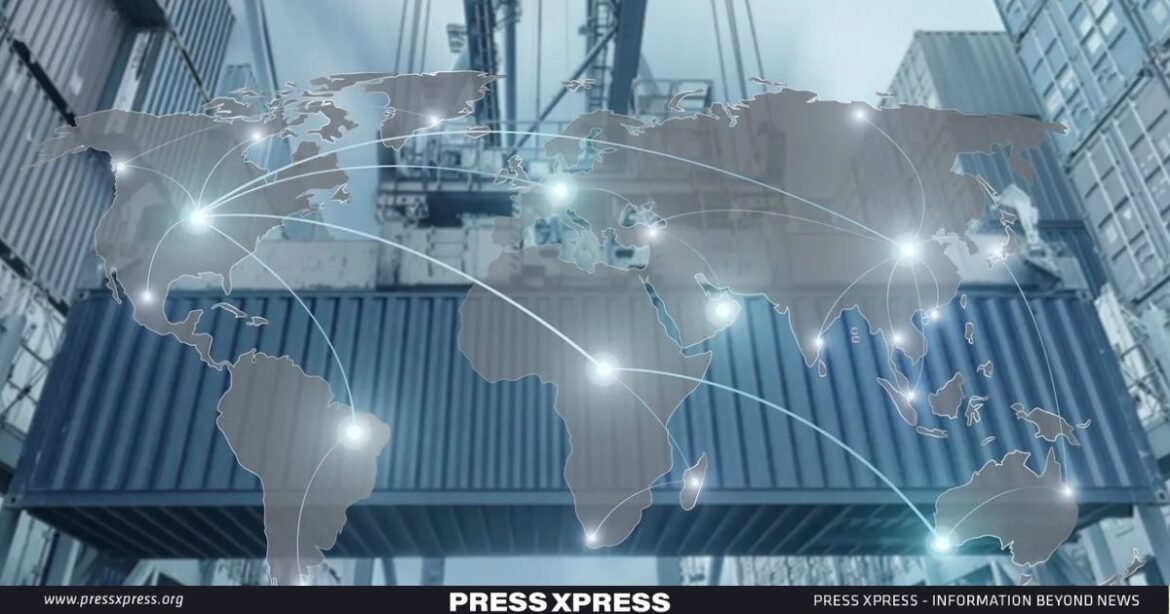Key highlights:
- Shipping rates from Shanghai to Europe increased by 256%
- Shipping rates from Shanghai to the US increased by 162%
- Number of ships passing the Suez Canal weekly drops by 42%
- Transportation on Panama Canal drops by 32%
The United Nations Conference on Trade and Development (UNCTAD) has expressed deep concern over the increasing disruptions in global trade, especially about geopolitical tensions affecting shipping in the Black Sea, the attack on trade ships in the Red Sea by Yemen’s Houthi rebels, and how climate change is affecting the Panama Canal.
You can also read: What’s in store for the world if Trump returns to the White House?
Recent attacks on shipping in the Red Sea, along with ongoing geopolitical and climate-related issues, have created a complicated crisis that is impacting major global trade paths. About 80% of goods around the world are transported through maritime routes, said the UN trade and development body in a statement on Friday, January 26, 2024, in Geneva.
Maritime transportation decreases drastically
According to the statement, the number of ships passing through the Suez Canal every week has dropped by 42% in the last two months.
The UNCTAD stressed the importance of the shipping industry quickly adjusting to these challenges and the need for strong cooperation between countries to tackle the changes happening in global trade.
The difficulties the global trade faces now show how easily it can be affected by geopolitical tensions and climate-related challenges. Dealing with these challenges requires collective efforts to find lasting solutions, especially to help countries that are more vulnerable to these shocks.
The current conflict in Ukraine is causing substantial changes in oil and grain trades, reshaping established trade routes. At the same time, the Panama Canal, which is also very important for global trade, is dealing with lower water levels, resulting in a huge 36% drop in total transportation over the past month, compared to a year ago. The long-term effects of climate change on the canal could seriously disrupt global supply chains in the long run.
The situation in the Red Sea, where attacks by the Houthi rebels are disrupting shipping routes, has made things even more complicated. As a result, top companies in the shipping industry have temporarily stopped using the Suez Canal. The number of container ships passing through the canal each week has dropped by 67% compared to last year.
During the last week of December, the average container spot freight rates increased by more than $500, the highest-ever weekly rise in the rates.
The average rates for shipping containers from Shanghai this week have skyrocketed, increasing by 122% compared to early December. In other words, they have more than doubled in this short period.
Abnormal increase in shipping rates
The shipping rates from Shanghai to Europe surged by 256%, which means the rates more than tripled. Rates to the United States West Coast, although they do not go through Suez, also went up significantly by 162%. This reflects the worldwide impact of the crisis, as ships are looking for different routes in a bid to avoid the Suez Canal and the Panama Canal.
All these disruptions are leading to longer travel distances for cargo, higher trade costs, and an increase in greenhouse gas emissions from shipping as ships have to cover greater distances and move faster to face these challenges.
When ships avoid using the Suez and Panama Canal, they end up spending more days at sea, which leads to higher expenses. The cost per day for shipping and insurance premiums has gone up significantly, adding to the overall expense of transit.
Moreover, ships are forced to increase their speed to make up for the longer detours, resulting in burning more fuel per mile and emitting more CO2. This further worsens environmental concerns associated with maritime transportation.
Global Implications: increases in food and energy prices
UNCTAD underscored the far-reaching economic implications of these disruptions.
Prolonged interruptions, particularly in container shipping, pose a direct threat to global supply chains, potentially leading to delayed deliveries and heightened costs. While current container rates are approximately half of their peak during the Covid crisis, passing on higher freight rates to consumers takes time, with the full impact expected to manifest within a year.
The discontinuation of gas transits is causing a significant surge in energy prices, directly affecting energy supplies, particularly in Europe. The crisis is also reverberating in global food prices, with longer distances and higher freight rates potentially cascading into increased costs. Disruptions in grain shipments from Europe, Russia, and Ukraine pose risks to global food security, affecting consumers and lowering prices paid to producers.
Major Impacts of Geopolitical Tensions:
- Suez Canal Traffic Decline
- Panama Canal Transportation Drop
- Red Sea Shipping Disruption
- Freight Rate Surge
- Shipping Rates from Shanghai
- CO2 Emissions and Environmental Impact
- Global Economic Implications
- Energy Price Surge
Conclusion
the United Nations Conference on Trade and Development (UNCTAD) has raised serious concerns about the escalating disruptions in global trade, fueled by geopolitical tensions, climate change impacts, and conflicts such as those in the Black Sea and the Red Sea. These challenges are reshaping established trade routes, with significant declines in shipping activity through critical passages like the Suez Canal and the Panama Canal. The shipping industry is facing abnormal increases in rates, leading to longer travel distances, higher costs, and increased greenhouse gas emissions. The repercussions extend globally, affecting food and energy prices, with potential threats to supply chains, delayed deliveries, and heightened costs. The collective effort of nations and swift adaptation of the shipping industry are emphasized as crucial to addressing these complex challenges and finding lasting solutions.


